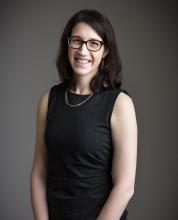The stewardship of artifacts from archaeological contexts is an increasingly complex practice. It demands not only an understanding of an artifact’s material properties but also engagement with complicated (and often contradictory) ethical frameworks. From the impact of the climate crisis on collections management practices to reckoning with the intertwined legacies of archaeology and colonialism, conservators of archaeological materials are often faced with challenging decisions for which there is no clear “right” answer. Conservators have increasingly acknowledged that our work is not neutral, and that our actions have the capacity to highlight - or obscure – aspects of an artifact’s biography. This lecture will present several case studies which address these issues, from the story-telling capabilities of materials science and conservation intervention to highly complicated negotiations between sustainability and access.
Anna Serotta is an Associate Conservator in the Department of Objects Conservation at the Metropolitan Museum of Art in New York, where her primary focus is on the ancient Egyptian collection. In 2014-15, she held a prestigious Rome Prize fellowship at the American Academy in Rome, where she combined modern technologies such as RTI (reflectance transformation imaging) with hands-on practice under a master sculptor for her project "The Documentation, Analysis and Replication of Tool Marks on Ancient Stone Sculpture." Her interests are broad, including the ethics of conservation and ancient techniques and technologies, among other specialties.
To attend this talk via zoom, please register here
